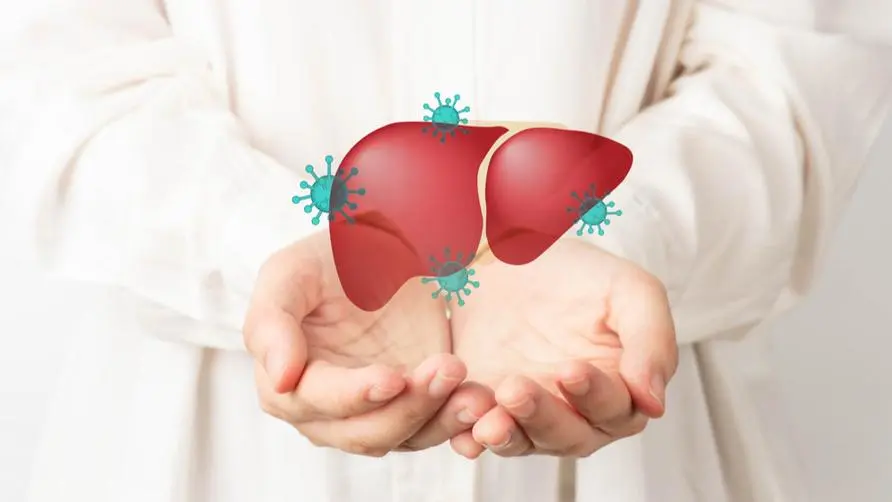Her long-term nasal congestion was not getting better, and a checkup found that "cancer cells" were covering her nasal cavity! Doctor: Don't ignore the "4 signs" of nasopharyngeal cancer

I thought it was allergies for a long time, but didn’t expect it to be a precursor to cancer? Dr. Lu Yinde from the Radiation Oncology Department of Guangtian General Hospital said that there was a female patient in the clinic who went to the otolaryngology department for treatment due to nasal congestion for several weeks. She was initially diagnosed with “nasal polyps” and went to the hospital for surgical removal. However, the postoperative pathology report found that The nasal polyps tissue originally thought to be benign turned out to be “cancer cells”.
Her nasal congestion could not be cured but she was diagnosed with “nasopharyngeal cancer”! Doctors reveal: The highest correlation with “three major factors”
Dr. Lu Yande said that the patient suffered from the first stage of breast cancer 8 years ago. Fortunately, it was discovered early and the diagnosis and treatment were appropriate, so he saved his life. However, 8 years later, the patient originally thought that the surgery would simply remove the nasal polyps, but he was further diagnosed with a malignant tumor. “This patient was quite surprised when he learned the news, but he was also lucky because the second cancer was detected early and the lesions were successfully removed.”
It is worth noting that the patient has a family history of nasopharyngeal cancer, and both his father and brother died of nasopharyngeal cancer. Dr. Lu Yande said that the possible causes of nasopharyngeal cancer have yet to be clarified. It is generally believed to be related to racial genetic factors, environmental factors and “EBV” infection. Among them, in terms of racial genetic factors, the Chinese are recognized to have the highest incidence of nasopharyngeal cancer. Even among Chinese who have immigrated abroad, the incidence rate is still seven times higher than that of local whites.
Dr. Lu Yande explained that it has also been found clinically that the first-degree relatives of nasopharyngeal cancer patients have a higher chance of contracting nasopharyngeal cancer than the general population. Therefore, the public can refer to the “Self-Checklist for Nasopharyngeal Cancer High-Risk Groups” published by the “Taiwan Cancer Foundation” to further conduct self-assessment and know whether they are at risk of cancer, which will help early detection and treatment.
What are the treatments for nasopharyngeal cancer? “Navigation Spiral Knife” kills cancer better than traditional surgery
What are the current treatment options for nasopharyngeal cancer? Dr. Lu Yande pointed out that because the primary location of nasopharyngeal cancer is close to the skull base and important facial organs and blood vessels, surgery is generally not the main treatment method for nasopharyngeal cancer. Currently, the most advanced treatment method for nasopharyngeal cancer is “navigated spiral knife”, which combines image guidance technology to accurately use high-energy radiation to treat tumors.
Dr. Lu Yande said that the Navigation Spiral Knife has 51 angles and can be flexibly and accurately positioned in 360 degrees. It is most suitable for the nasopharyngeal cavity with many organs and glands and a small surgical space. In addition, the Navigation Spiral Knife’s radiation treatment can It can prevent cancer cells from regenerating and proliferating, and even kill cancer cells. It is also very effective in clearing malignant tissue cells. After treatment with the Navigated Spiral Knife, the patient’s current condition is stable and there are no further signs of recurrence.
No more suffering from the side effects of radiotherapy! Doctors recommend seeking medical attention immediately if you experience “4 symptoms”
In addition, many nasopharyngeal cancer patients often experience uncomfortable symptoms such as difficulty swallowing and severe dry mouth after receiving radiotherapy. Dr. Lu Yande explained that the dose of radiotherapy is relatively high and can easily cause damage to the salivary glands on both sides. The advantage of the navigation spiral knife is that it can use computerized tomography navigation and positioning before treatment to accurately confirm the treatment site. Therefore, the radiation dose is lower, which effectively relieves the patient’s pain. Damage to tissues surrounding the nasopharyngeal cavity and reduction of salivary glands.
Finally, Dr. Lu Yande appealed that if you have symptoms such as swollen neck lymph nodes, tinnitus or ear congestion, mild nosebleeds, or bloodshot nose, it is recommended to seek medical treatment as soon as possible and do not ignore these abnormal warning signs. People with a high risk of nasopharyngeal cancer, such as those with a family history, are also recommended to be screened as soon as possible. The earlier treatment is given, the better the chance of successfully fighting cancer.
“The prognosis of nasopharyngeal cancer is closely related to the time of discovery. As long as it is the first stage of cancer, the cure rate can be over 90%!” Dr. Lu Yande said.
Further reading:





